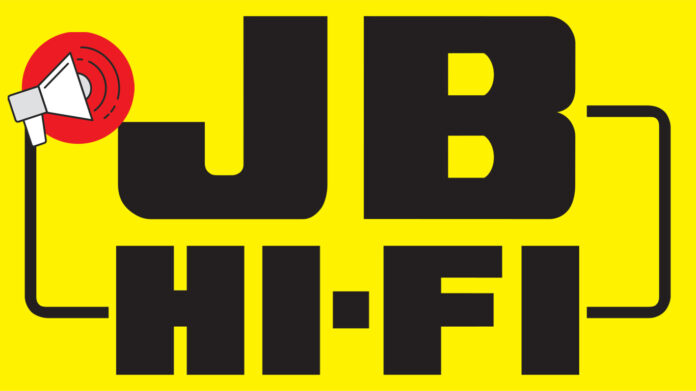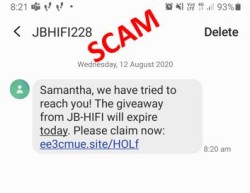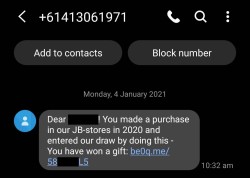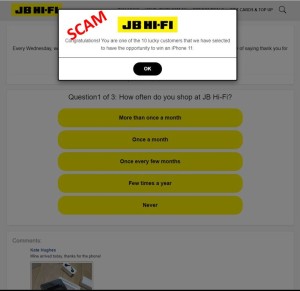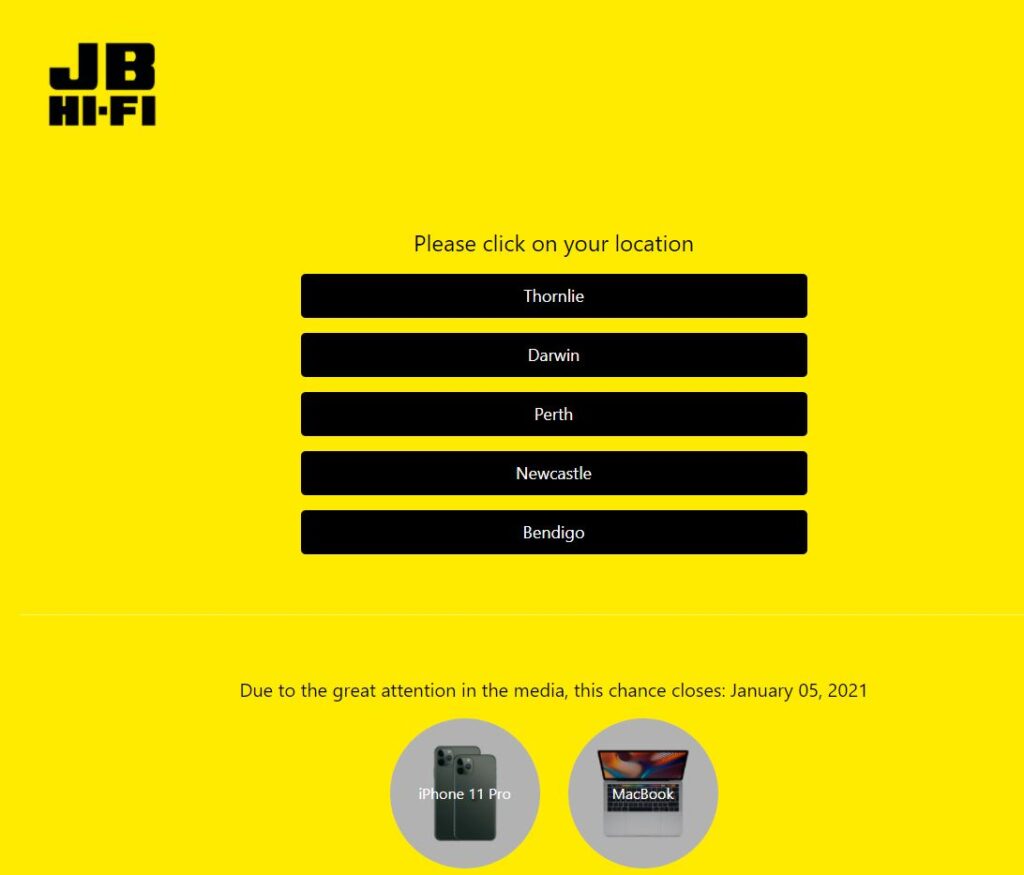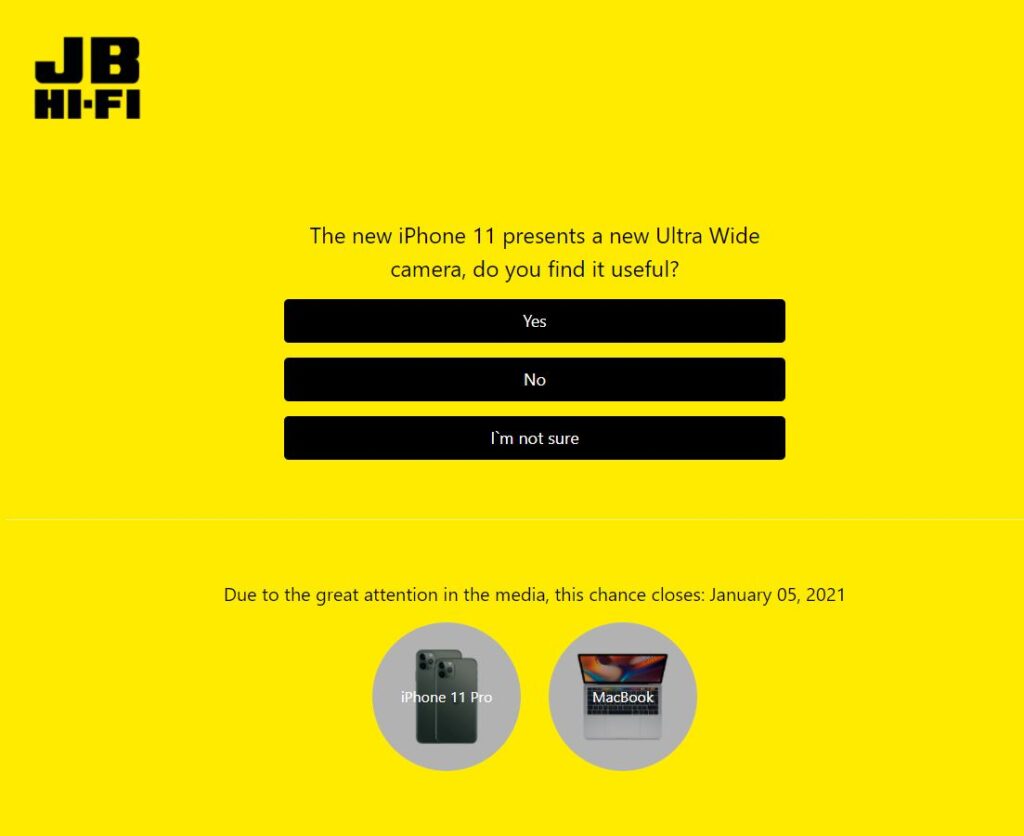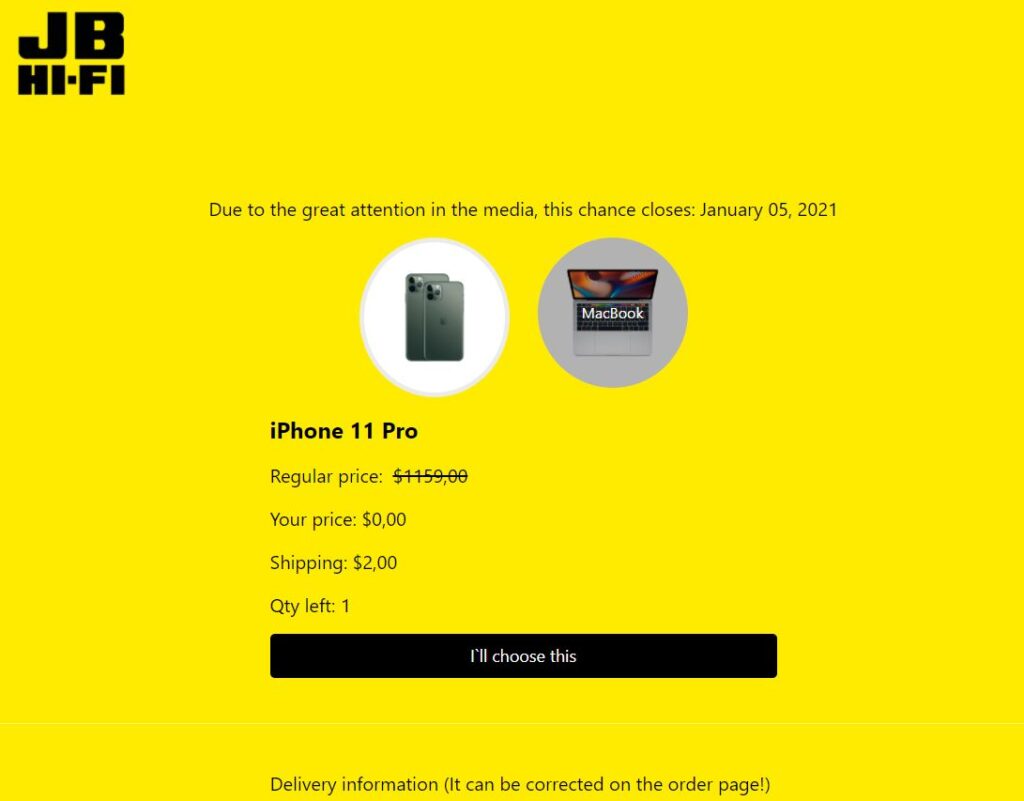Beware, consumers! Scammers are at it again, this time impersonating electronics retailer JB Hi-Fi. They’re sending out SMS messages about an imminent ‘giveaway’. But don’t be fooled. This is nothing more than a cunning phishing ploy to steal your credit card details.
Last year, WA ScamNet issued a warning about a similar JB Hi-Fi giveaway scam.
Now, a new variant of the scam has surfaced, where unsuspecting victims find themselves signed up for a streaming/entertainment subscription.
The Anatomy of the Scam
In this latest version, victims receive an SMS, supposedly because they made a recent purchase at JB Hi-Fi and thus have won a gift.
An embedded link in the SMS directs them to a fake JB Hi-Fi webpage, which claims that three winners will be selected daily throughout January as a token of appreciation for a successful 2020.
The page displays three names, including the recipient’s, who is then invited to click on a button to claim the prize. After answering a few questions about their shopping preferences, they are asked to pay a $2 postage fee to receive the gift—a MacBook or an iPhone 11 Pro.
Once a gift is chosen, victims are directed to another page to create an account, requiring an email address and password. The final step?
Entering their credit card details. Unbeknownst to victims, they’re actually signing up for a monthly subscription service costing $49.95.
While the company behind the streaming service seems to be a legitimate entity based in Cyprus, WA ScamNet is concerned that consumers may not realize they’re surrendering their credit card details for a recurring charge. There’s also no guarantee that this is the only charge they’ll incur or that they’ll even be able to access the promised content.
How to Protect Yourself
If you receive an unsolicited SMS like this, the best course of action is to delete it immediately. Here are some additional tips:
- Don’t open or click on links in suspicious or unsolicited emails or text messages—delete them.
- Contact the official company using their verified contact details to verify the legitimacy of an offer.
- Be alert for signs that a website may be fake, such as spelling errors, low-quality images, or an unusual address that differs from the company’s genuine website.
- Never enter your personal, credit card, or online account information on a website unless you’re certain it’s authentic.
- If you’ve already made a payment, monitor your credit card statement for any unusual transactions. If you notice anything suspicious, contact your credit card provider immediately, cancel your existing card, and request a new one.
Remember, knowledge is power. Stay informed, stay vigilant, and keep your personal information secure. Report Scams to OzScamWatchers.com.


